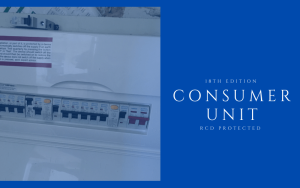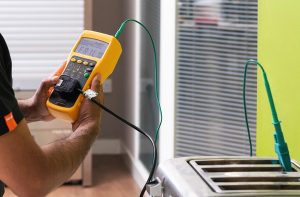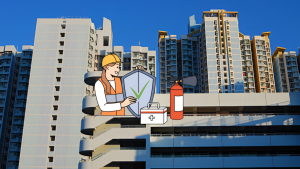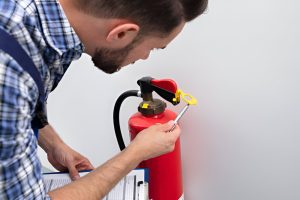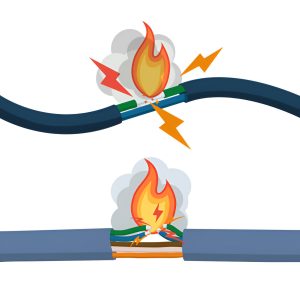While it might seem tempting to overlook the annual gas safety check to save some time and money, I can assure you, it’s a mistake that can cost you much more in the long run. The penalties for not having an updated Gas Safety Certificate are severe, with fines reaching up to £20,000 and even a possible prison sentence.
But how does this penalty system work, and what other consequences could you potentially face as a landlord? Let’s take a closer look at the implications and why it’s more than just a legal requirement.
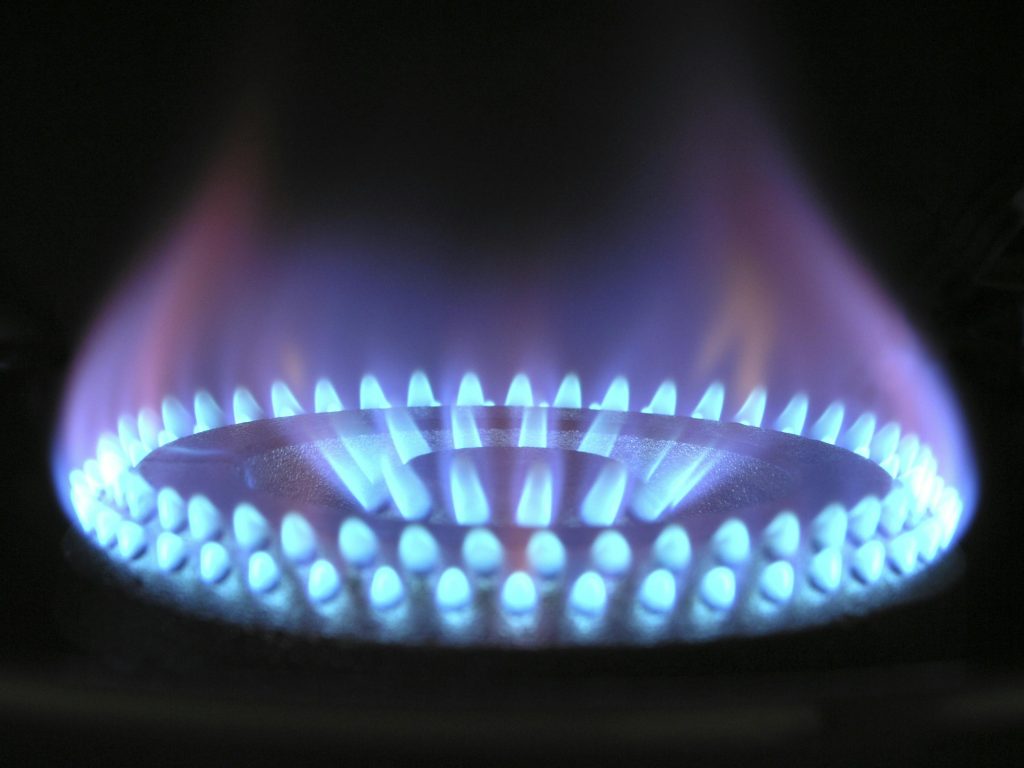
Understanding Gas Safety Certificates
To understand the importance of Gas Safety Certificates, it’s essential to know that they’re legal documents issued after an annual inspection of gas fittings, appliances, boilers, and fuels in a property. These certificates serve as proof that the property complies with safety regulations, highlighting the inspection’s importance.
As a landlord, these certificates aren’t just a mandatory requirement but a testament to my commitment to my tenants’ safety. It’s my obligation to ensure all gas appliances, fittings, and fuels are working correctly and safely. Failure to uphold these responsibilities can lead to serious legal implications.
The fine repercussions for not having a Gas Safety Certificate are substantial. If found non-compliant, I could face hefty fines, even imprisonment. But the financial penalty is just the tip of the iceberg. There could be legal proceedings, and in the unfortunate event of a gas-related accident, I could face manslaughter charges.
In a nutshell, understanding and complying with the safety regulations connected to Gas Safety Certificates are as much about legal obligations as they’re about ensuring the safety and wellbeing of my tenants. It’s a responsibility I can’t afford to overlook.
The Gas Certification Process
Having understood the importance and legal implications of the Gas Safety Certificate, let’s now explore the certification process itself. The path to obtaining this vital certificate involves several key steps, all of which emphasize safety and compliance with inspection guidelines.
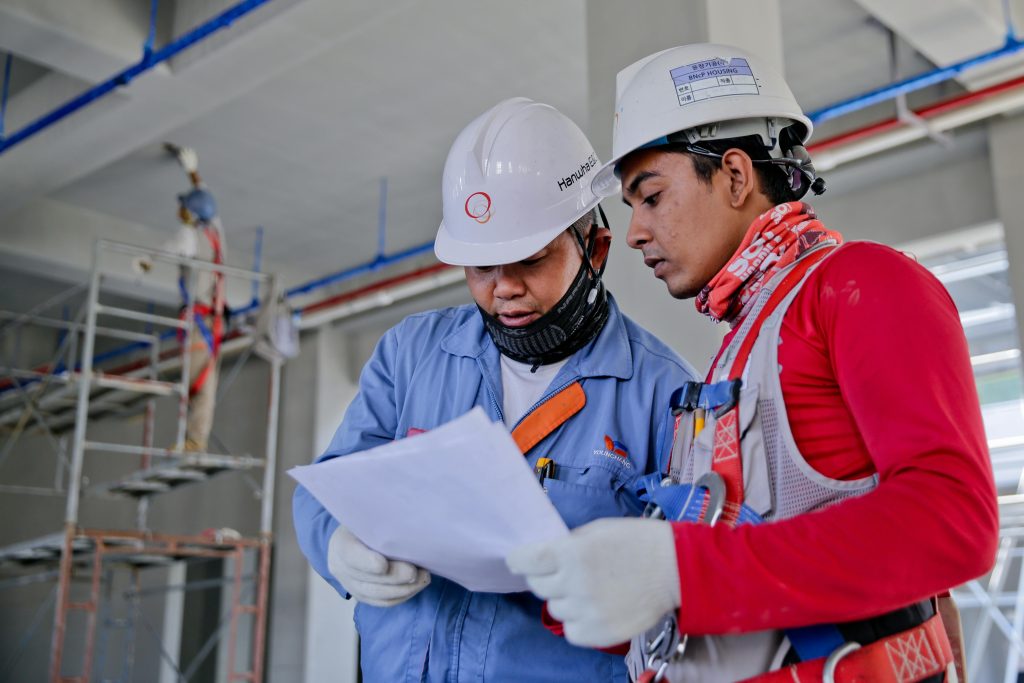
To initiate the process, you’ll need to hire a Gas Safe registered engineer. Their qualifications are crucial as they’re trained to correctly inspect your gas fittings, appliances, and systems. They’ll conduct a thorough check, adhering to stringent guidelines designed to detect any faults that might pose a risk.
Following the inspection, certificate renewal is an annual requirement, ensuring continuous safety monitoring. It’s vital to plan for this, marking it as a recurring event in your calendar to avoid an overlooked expiration.
In terms of safety precautions, it’s essential to immediately report any perceived gas leaks to your engineer or the gas supplier. Prompt reporting can prevent a minor issue from escalating into a major hazard.
Tenant and Landlord Responsibilities
Understanding the distinct responsibilities of tenants and landlords in relation to gas safety is crucial for maintaining a secure residential environment. Tenant education plays a huge role. As a tenant, you’re responsible for the safety of the gas appliances you bring into the property. You must ensure they’re in good working order and safe to use.
Landlord obligations, on the other hand, are more extensive. Landlords are legally required to ensure the safety of gas appliances, pipelines, and flues they provide. They must arrange for an annual gas safety check by a registered engineer and provide tenants with a copy of the gas safety certificate.
Safety precautions must be taken seriously. Both tenants and landlords should be aware of the signs of a gas leak and understand the correct actions to take in such situations.
The financial implications and legal repercussions for not complying with these responsibilities are severe. Landlords can face hefty fines and even imprisonment for failing to ensure gas safety. Therefore, it’s not only a matter of safety but also of legal compliance and financial prudence to meet these responsibilities.
Maintaining Post-Certification Safety
While ensuring gas safety compliance is a pivotal step, it’s equally important to maintain vigilance after obtaining the gas safety certificate. This means regularly practicing safety precautions to ensure that the premises remain safe for all occupants.
One such precaution is the frequent inspection of all gas appliances and fittings. Inspection frequency should ideally be at least once a year, if not more. This is to ensure that any wear and tear or issues that might’ve arisen post-certification are promptly addressed before they escalate into significant problems.
Another key safety measure is the installation of alarms, specifically carbon monoxide detectors. Carbon monoxide is a silent killer and early detection could save lives. Therefore, alarm installation is a crucial step in post-certification safety.
Reporting leaks promptly is another essential safety precaution. If a gas leak is suspected, it should be reported immediately to the relevant authorities. This isn’t just for the safety of the occupants, but also to prevent any potential damage to the property.
Consequences of Non-Compliance
Neglecting to comply with gas safety regulations can lead to severe consequences, including hefty fines and even imprisonment. The non-compliance consequences are indeed grave and far-reaching, with the potential to impact not only your finances but also your freedom.
Let’s look at the fine implications first. The financial penalties for non-compliance can reach up to £6000 per breach. This isn’t a small amount and can cause significant financial strain, especially for landlords with multiple properties.
But the legal repercussions extend beyond just fines. In severe cases, landlords can face imprisonment for up to six months. Moreover, in instances where non-compliance results in casualties, the charges can escalate to manslaughter.
Safety enforcement is a serious matter that can’t be overlooked. Authorities are increasingly vigilant in their inspections and enforcement actions. Failure to comply can lead to an invalidation of property insurance, further exacerbating the financial consequences.
Legal Defenses and Risk Management
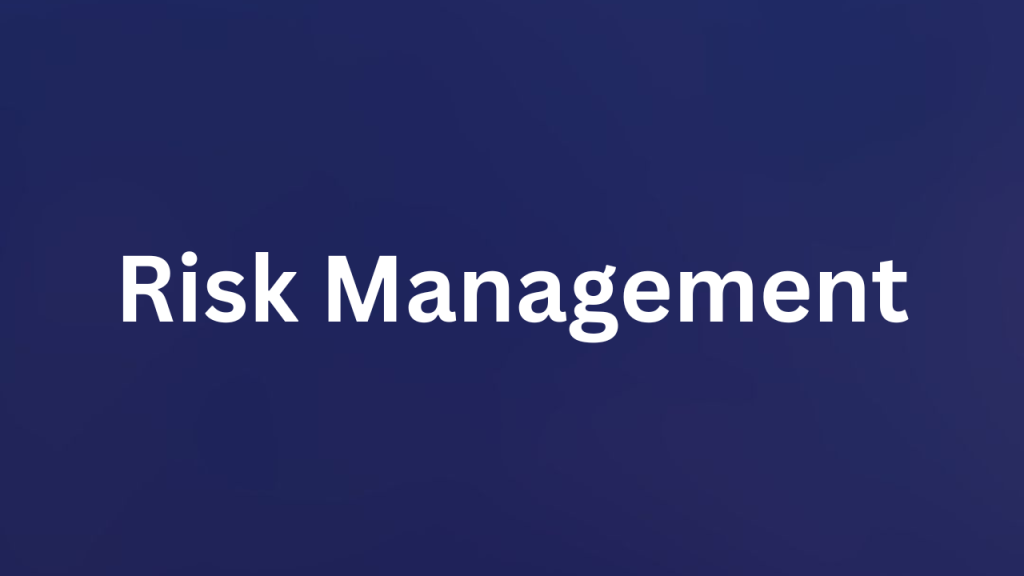
In the face of potential legal consequences, it’s crucial to explore possible defenses and risk management strategies for landlords and property managers. Legal ramifications for not having a Gas Safety Certificate can be severe, including hefty fines and even imprisonment. However, there are defenses that can be employed. A due diligence defense, for example, may be accepted if the landlord can provide evidence of having taken all reasonable steps to comply with the law.
Risk mitigation is another important aspect of managing liability. This involves putting measures in place to minimize the likelihood of violating regulations. Effective compliance strategies could include regular scheduled inspections, maintaining accurate records, and ensuring that all gas appliances are in safe working order. It’s also advisable to stay updated on any changes in gas safety regulations.
Lastly, as part of liability protection, landlords should consider obtaining proper insurance coverage. This can provide a safeguard against potential claims and legal costs. However, it’s important to note that insurance doesn’t absolve landlords from their legal responsibilities. Complying with the law remains the best defense and risk management strategy.
Frequently Asked Questions
How Can a Landlord Ensure the Gas Safety Engineer They Hire Is Registered With the Gas Safe Register?
As a landlord, I’d verify an engineer’s registration with the Gas Safe Register by checking their ID card and cross-referencing it online. This ensures their professional credentials and the validity of the certificate they issue.
What Should a Tenant Do if They Suspect a Gas Leak in the Property?
I’d immediately report a suspected gas leak to my landlord and the gas company. I’d also evacuate the premises following the emergency plan until professionals determined it’s safe. Regular maintenance checks are crucial to prevent such situations.
How Can a Landlord Renew a Gas Safety Certificate and How Long Does the Process Take?
I’d hire a Gas Safe registered engineer to renew my gas safety certificate. Costs vary, but it’s worthwhile for tenant safety. The process takes a few days, and online renewal and reminders ensure certificate validity.
Is There a Difference in Requirements for Gas Safety Certificates Between Residential and Commercial Properties?
I’m not aware of any differences in gas safety certificate requirements between residential and commercial properties. Certificate validity, residential penalties, commercial consequences, safety regulations, and certificate exceptions generally apply across the board.
What Other Safety Measures Can Tenants and Landlords Take Apart From Obtaining a Gas Safety Certificate?
As a tenant, you’re responsible for regular maintenance and safety inspections of your own appliances. Landlords must ensure proper functioning of installed gas appliances. It’s also wise to install carbon monoxide alarms for added safety.
Conclusion
In conclusion, as a landlord, it’s not just my duty, but it’s in my best interest to ensure my properties are Gas Safe.
With non-compliance leading to the possibility of hefty fines, legal action, or even jail time, it’s a risk I simply can’t afford to take.
Being diligent about my Gas Safety Certificate isn’t just about ticking a box; it’s about protecting my tenants, my business, and ultimately, myself.



